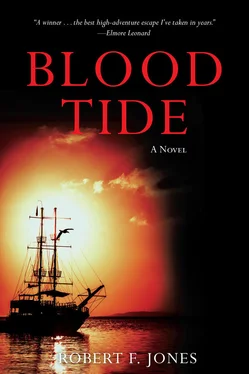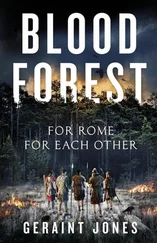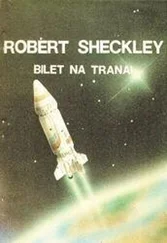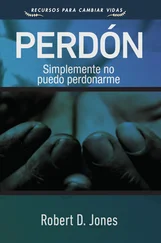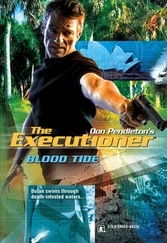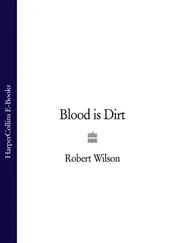Robert Jones - Blood Tide
Здесь есть возможность читать онлайн «Robert Jones - Blood Tide» весь текст электронной книги совершенно бесплатно (целиком полную версию без сокращений). В некоторых случаях можно слушать аудио, скачать через торрент в формате fb2 и присутствует краткое содержание. Год выпуска: 2014, Жанр: Старинная литература, на английском языке. Описание произведения, (предисловие) а так же отзывы посетителей доступны на портале библиотеки ЛибКат.
- Название:Blood Tide
- Автор:
- Жанр:
- Год:2014
- ISBN:нет данных
- Рейтинг книги:5 / 5. Голосов: 1
-
Избранное:Добавить в избранное
- Отзывы:
-
Ваша оценка:
- 100
- 1
- 2
- 3
- 4
- 5
Blood Tide: краткое содержание, описание и аннотация
Предлагаем к чтению аннотацию, описание, краткое содержание или предисловие (зависит от того, что написал сам автор книги «Blood Tide»). Если вы не нашли необходимую информацию о книге — напишите в комментариях, мы постараемся отыскать её.
Blood Tide — читать онлайн бесплатно полную книгу (весь текст) целиком
Ниже представлен текст книги, разбитый по страницам. Система сохранения места последней прочитанной страницы, позволяет с удобством читать онлайн бесплатно книгу «Blood Tide», без необходимости каждый раз заново искать на чём Вы остановились. Поставьте закладку, и сможете в любой момент перейти на страницу, на которой закончили чтение.
Интервал:
Закладка:
Another wasted slope. Not many years ago the phrase would have enraged him, or at least brought a bitter twist to his smile, but now he knew the words applied to him as finally as they did to his dead wife, and to all the dead of his lifetime. His passengers, at least, had hope. Most of them had relatives already in the United States—the World, as the My called it, the Land of the Big PX—and those who did not at least had friends in America who would swear to blood ties. The former ARVN officers would be welcomed, out of My guilt if nothing else; the businessmen, for their money, of course. Captain Tho had no one to vouch for him; he had only the worthless Vietnamese piasters his passengers paid him in advance, some of which he had converted to a few ounces of gold—but not enough to bribe even the lowliest of those Filipino officials whose appetite for palm oil was legendary, even so far afield as Taipei and Singapore, themselves mythic capitals of corruption. Captain Tho knew his best chance lay in delivering his human cargo as secretly as he had loaded it, under cover of darkness on some lonely beach, then disappearing into the maze of islands—more than seven thousand of them, and few with any governmental presence at all—that constituted the Philippine archipelago. His gold and the pesos he might realize from selling the Happy Life could be enough to last him the few short years that remained to him. If not, there was always the carbine—or his knife, a razor, a short length of rope . . .
But now, as Captain Tho stood at the tiller, his legs braced against the first swells of the Sulu Sea, even those prospects seemed unlikely. Last night, with the southwest monsoon filling his one remaining sail, he had slipped the trawler between the Philippine islands of Palawan and Balabac, through the narrow Balabac Strait into the Sulu Sea. Other delta fishermen who had made this passage warned him that the southern coast of Palawan was infested with mundo . He must pass it with the utmost stealth, then turn northeast with the monsoon winds at his back and run as fast as he could for Puerto Princesa, far up the inside coast of Palawan. There was a Philippine naval station there, where his passengers could turn themselves in for temporary internment at a refugee camp until further passage to Manila and the United States could be arranged.
As dawn broke, with a high green island called San Lázaro dead abeam to the west, Captain Tho saw what he had dreaded throughout the voyage. Three small, speedy boats appeared through the break in the island’s fringing reef and raced toward the Happy Life , their engines throwing rooster tails high in the red dawn light. Captain Tho checked to see that the carbine was loaded, with a round in the chamber. Then he hid it again beneath the straw mat beside the wheel. These would be the mundo .
Yet as the boats raced nearer, he felt a flicker of hope. The mundo , he’d been told, used what the Filipinos called pump boats, knife-hulled outriggers powered by big Japanese outboard engines. These boats looked more like military vessels. Their flat, wide hulls, on which he could see machine guns mounted forward of the gleaming glass windshields, were painted a dull dark green, the color of mangrove swamps, and all of them had long, whippy radio antennae. Perhaps this was a Philippine Navy patrol. Perhaps he wouldn’t need the carbine.
As the sound of the boats reached the Happy Life , women and children awoke and scrambled on deck, lining the rail and chattering in high, tense voices. The men took their time appearing, trying to look brave and unconcerned, but Captain Tho could feel their fear as clearly as one feels heat from a bomb crater. They all kept glancing at him, there at the helm, and he tried to smile back reassuringly. The pregnant monkey at the masthead was screaming furiously.
Then the boats were alongside, idling down to take station astern and on either beam of the Happy Life . Some of the crewmen were dressed in navy-style fatigue uniforms, baseball caps, light blue shirts, dark blue dungarees. Others, though, had their heads wrapped in bandannas and were bare-chested or wearing dirty T-shirts with slogans written on them in My , the language of the long-noses. These men preferred greasy tan shorts or sarongs. All of them, regardless of dress, were heavily armed.
“Where are you bound?” A man on the boat to Captain Tho’s right was speaking on a loud-hailer in Vietnamese.
“Puerto Princesa,” he yelled back.
“What cargo?”
“Nothing. Just passengers and their personal effects.”
“Heave to and stand by to be boarded. We must search your vessel.”
Well, it was to be expected. Captain Tho put the helm over and luffed up into the wind. The Happy Life slowed and stopped. The boarding party scrambled over the rail. The man who had spoken on the loud-hailer came aboard and stood beside Captain Tho. He was a wide, thick, dark man with a face like a scarred slab of mahogany. A heavy pistol was holstered on his hip, but he bore no insignia on his fatigues. His eyes were an odd, flat green color, like that of the boats.
“Are you of the navy?” Captain Tho asked.
“You need not worry,” the man said. He smiled with his mouth but not with his eyes. “A routine search, nothing more.”
But it was a strange routine.
Down on the deck one of the searchers grabbed a chicken and yanked its head off. Then he threw the flapping body into the cockpit of the boat alongside, yelling something to those in the boat that made them laugh uproariously. One of them picked up the bird and pretended to copulate with it. They laughed even louder.
Another caught a pig after a brief chase and cut its throat with his bolo knife. The blood sprayed out over the women and children nearby, and they started to scream. The man raised his bolo, and they quieted. The pig lay bleeding into a bundle of clothes.
Other men were looting the passengers with easy efficiency, taking transistor radios, cook pots, items of clothing, wallets—whatever of value they could find. Trinh Van Suu, a trim, straight-backed old man who had been an ARVN colonel, stepped forward and remonstrated with one of the looters. His eyes flashed, as did the gold in his mouth. The looter drew a pistol and shot Colonel Trinh through the chest. Then he hammered the gold teeth from his mouth and pocketed them.
Looters were raping young women right there on deck. Children looked on, fascinated.
“You are not of the navy,” Captain Tho said.
The wide man laughed.
Nguyen Tran Le, the banker from Cho Lon, waddled aft to the wheel, furious. He stopped just below Captain Tho.
“Traitor! Pirate! You betrayed us, you led us to these devil-bandits, you’re in league with them! Deny it if you can!”
The monkey was screaming on the masthead.
“I deny it,” Captain Tho said. The wide man laughed again.
Nguyen Tran Le had turned purple with rage. He fumbled under his shirt and drew out a small silver pistol. He pointed it, shaking, at Captain Tho, and the wide man ducked as the bullet whistled past. Nguyen Tran Le fired again.
Captain Tho pulled the carbine from under the mat and shot Nguyen Tran Le in the throat. The monkey screamed louder.
The rearmost fast boat suddenly shot forward and came up alongside. A My stood in the cockpit, a tall blond man turning gray, with the look of an officer about him. He wore a billed blue cap covered with gold leaf and a short-sleeved khaki shirt. Light glinted on odd, lozenge-shaped scars around his biceps.
“Goddamn it, Billy, what the fuck’s all the shooting? I told you once, I told you a hundred times—fuckin’ ammo don’t grow on trees!”
“Not our shooting, Commodore,” the wide man yelled back. “One of the passengers took a pop at the captain here, and the captain popped him back.”
Читать дальшеИнтервал:
Закладка:
Похожие книги на «Blood Tide»
Представляем Вашему вниманию похожие книги на «Blood Tide» списком для выбора. Мы отобрали схожую по названию и смыслу литературу в надежде предоставить читателям больше вариантов отыскать новые, интересные, ещё непрочитанные произведения.
Обсуждение, отзывы о книге «Blood Tide» и просто собственные мнения читателей. Оставьте ваши комментарии, напишите, что Вы думаете о произведении, его смысле или главных героях. Укажите что конкретно понравилось, а что нет, и почему Вы так считаете.
